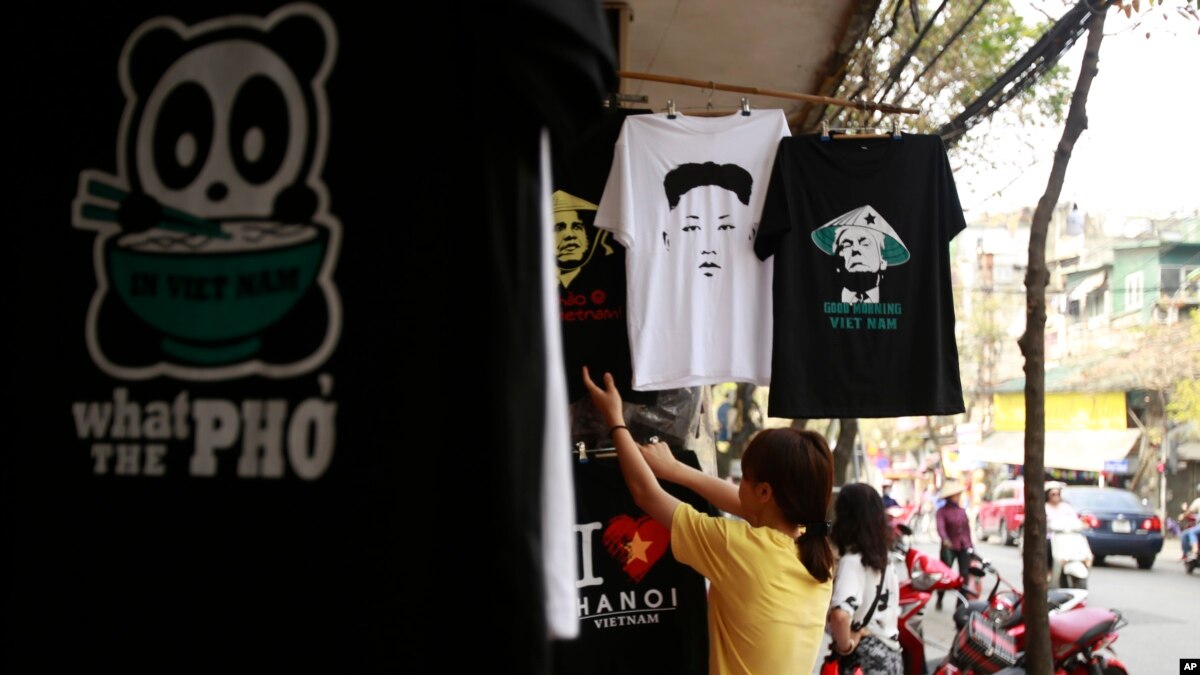
Last year in Singapore, Donald Trump and Kim Jong Un agreed to work toward the “complete denuclearization of the Korean peninsula.” This week in Hanoi, they face a much harder task: agreeing on what denuclearization even means and figuring out how to move the process forward.
Here’s what to watch for as Trump and Kim meet in Vietnam.
Can the Hanoi summit break the stalemate?
Following his first meeting with Kim, Trump declared “there is no longer a nuclear threat” from the North. Eight months later, the U.S. and North Korea appear to have made little progress on the nuclear issue, and there is growing pressure on Trump to show results.
Until recently, North Korea wouldn't even agree to hold consistent lower level talks. As the Hanoi summit approaches, the situation has improved. U.S. and North Korean officials have already held several days of meetings in Hanoi before Trump and Kim arrive.
Can both sides get on the same nuclear page?
Last week, a U.S. official acknowledged that North Korea and the U.S. are still trying to agree on a common definition of denuclearization – a vague concept that has no technical meaning.
For Washington, denuclearization means North Korea giving up its nuclear weapons. For Pyongyang, things are more complicated.
North Korea prefers the term “denuclearization of the Korean peninsula.” For Pyongyang, the idea has traditionally involved the U.S. eliminating or reducing its security commitment to its ally, South Korea.
To help clear up the confusion, U.S. officials hope the Hanoi summit results in a “roadmap” that sets expectations for both sides. It’s not clear how specific the document would be or if it would include timelines.
Will Kim offer a compromise to get the process going?
Reports have suggested North Korea may offer a limited step toward dismantling its nuclear weapons as evidence of its intent to denuclearize.
That could include agreeing to destroy at least part of its main Yongbyon nuclear complex or other nuclear facilities.
While Yongbyon doesn't represent North Korea’s entire nuclear program, “it’s a pretty good chunk of it,” said Robert Manning, a former State Department official who specializes in Korea.
Other possible steps include handing over a small number of nuclear warheads or missiles, providing a list of nuclear and missile sites, or allowing access to international inspectors.
Will the US relax sanctions?
The Trump administration has long insisted it will not ease sanctions until North Korea completely dismantles its nuclear program. But recently, the White House seems to have softened its stance.
In an interview Sunday with CNN, U.S. Secretary of State Mike Pompeo said Washington could provide partial sanctions relief in exchange for a “substantial step” from the North, though he insisted that “core economic sanctions” will remain in place.
One possible compromise: the U.S. could allow the resumption of inter-Korean projects that provide the North with crucial cash, including the Kaesong Industrial Complex just north of the demilitarized zone and the North’s Mount Kumgang tourist area.
Could there be a formal end to the Korean War?
U.S. officials are considering whether to use the summit to announce a formal end to the Korean War, which eased into a truce rather than a peace treaty in 1953.
Though the declaration would mainly be symbolic, the U.S. may be reluctant to offer such a concession until North Korea makes more progress on denuclearization.
That is because formally ending the Korean War could weaken international pressure on North Korea and raise questions about how many U.S. troops are still needed in the South.
Will Trump alter the U.S. military presence in South Korea?
During his one-on-one meeting with Kim in Singapore, Trump agreed to suspend military exercises with South Korea. Trump could decide to make a similar concession during his private sessions with Kim in Hanoi.
Trump and other senior U.S. officials have repeatedly insisted that the removal or reduction of U.S. troops in South Korea is not being discussed as part of the nuclear talks. But Trump has a long history of questioning the effectiveness and cost of the 28,000 U.S. troops in Korea.
Will Trump and Kim hand the nuclear talks to scientists?
One of the biggest accomplishments in Hanoi would be to hand off the nuclear negotiations to specialists, said James McKeon, a policy analyst at the Center for Arms Control and Non-Proliferation.
“The two leaders of the countries can't solve everything themselves,” McKeon says. “I don’t think they have a thorough enough understanding to be able to take care of some of these really complex issues that you're going to need scientists on, you're going to need technical experts on.”
Trump, who has touted the effectiveness of his personal relationship with Kim, said last week he could envision more summits with the North Korean leader in the future.
Read More Harder Tasks Await Trump, Kim at 2nd Summit : https://ift.tt/2Vo9y9l
No comments:
Post a Comment